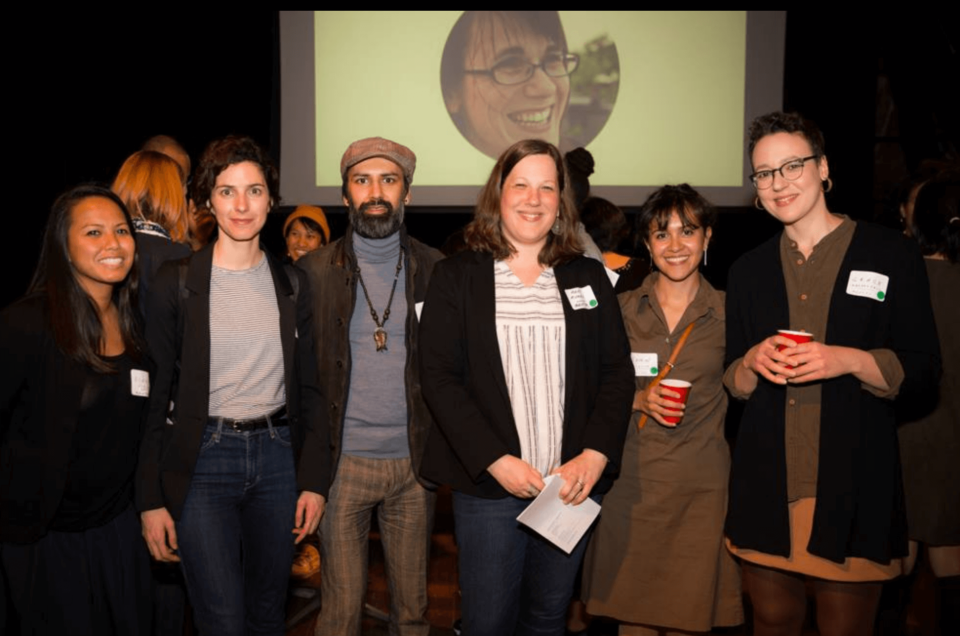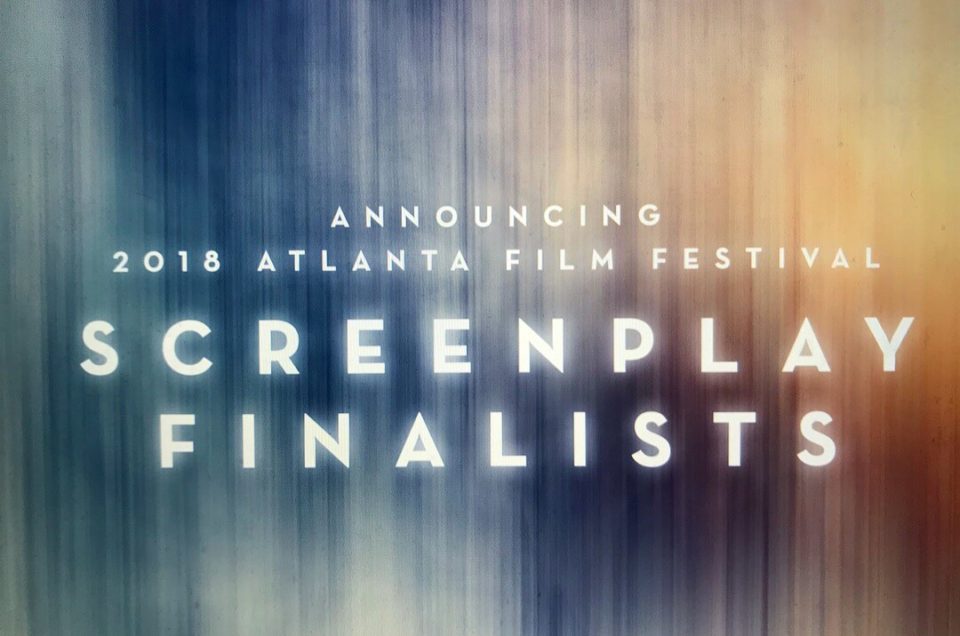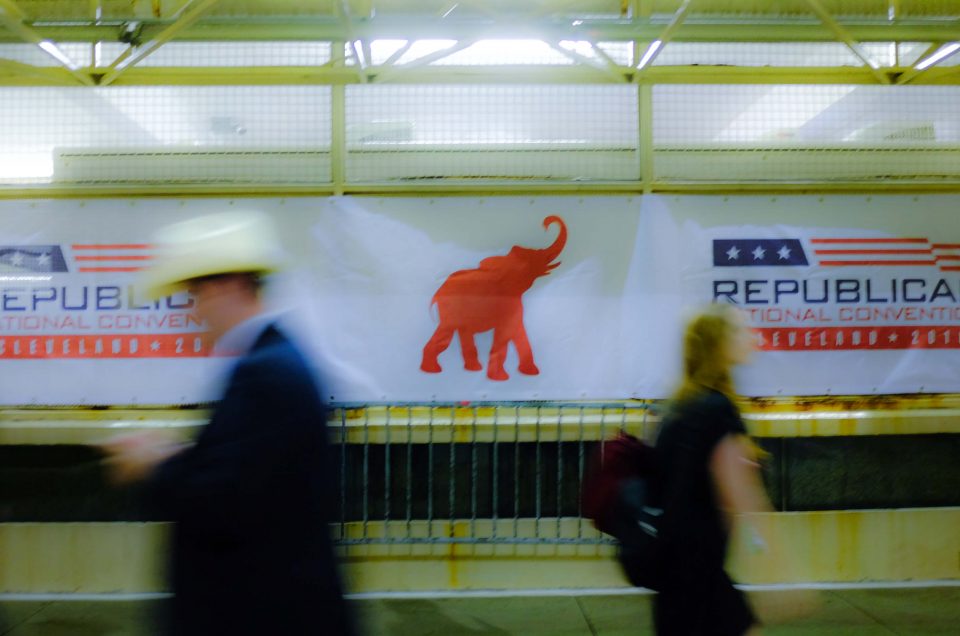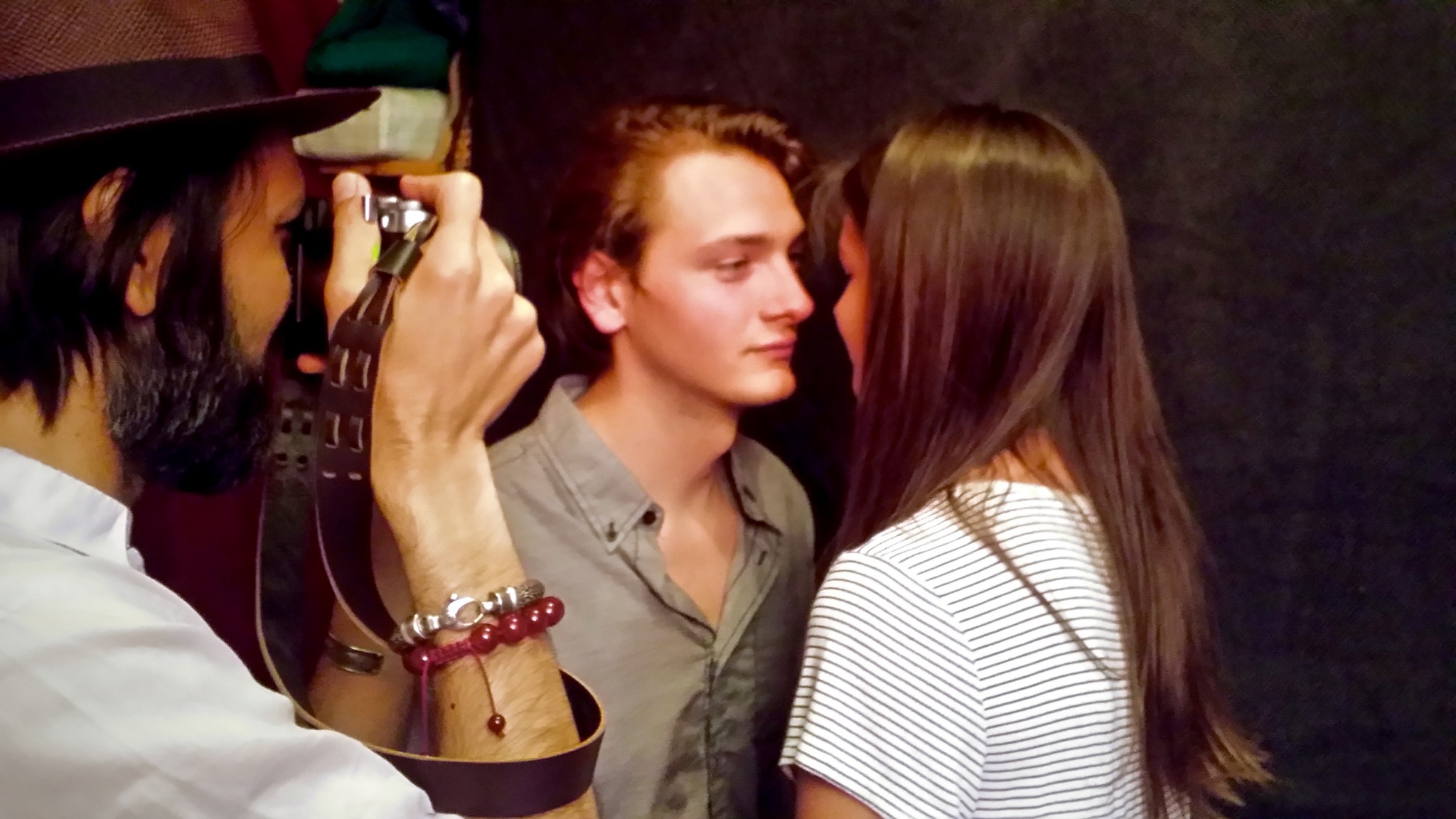“Stories change the world because they change minds. But in order to change minds, we need to tell different stories from different vantage points, and listen more to voices that seldom get heard.”
Pakistani rock band XarB’s first music video for their single, Baysabro (“Restless Ones”), takes us on a journey into the imagination of a rag tag bunch of kids who follow their fearless leader into battle. Featuring children of Afghani refugees who live in the slums of Lahore, Pakistan, this vibrant short film introduces us to a world where kids who have little make the most of what they have—and grapple with the senselessness of war through play.
A long-distance collaboration
In January 2014, I was contacted by Ali Javed, who lives in Lahore, Pakistan. Ali had been impressed by the work I did as an editor/producer for Without Shepherds (an award-winning documentary about Pakistan) and wanted to consult with me about a music video he shot with his co-director, Saad Sulaiyman. They had been working on an assembly of the film and were stuck.
When I saw the rough material, I was immediately struck by the unique sound of XarB (an up-and-coming Pakistani rock band), the originality of the story the directors were trying to convey, and, most of all, the charismatic and touching performances elicited from the kids who star in the video—all of them children of Afghani refugees living in the slums of Lahore.
“We were all on the same page in terms of seeing this as more of a short film set to music than a conventional music video.”
I saw a lot of potential in the material from a narrative and visual standpoint, but also in terms of having a chance to show a more human side of Pakistan—a side anyone in the world could relate to that has nothing to do with bombs, bullets, the Taliban or arranged marriages. But, in order to reach a wider audience, these guys were going to need help. So I came on board the project as editor, colorist, title designer and co-producer. Even though I was based in the U.S., technology made it possible for us to coordinate and share using email, Skype, Facebook messenger, Google Drive, WeTransfer, and Vimeo. Ali and Saad gave me full creative freedom to do basically whatever I wanted, which was really cool.
We were all on the same page in terms of seeing this as more of a short film set to music than a conventional music video. So, in the editing, I focused not just on syncing shots to the music, but also on telling the story in the most economical way possible and by playing with time, rhythm, and speed changes to create dramatic moments and emotional impact.
“I’ve often been bothered by representations of Pakistan in the U.S. media as dusty, full of rubble and lacking in color, which couldn’t be more inaccurate. In reality, Pakistan, like its neighbor India, is vibrant and rich in color and texture.”
In color grading, I decided to go for a look that would give viewers a different visual impression of Pakistan. I’ve often been bothered by representations of Pakistan in the U.S. media as dusty, full of rubble and lacking in color, which couldn’t be more inaccurate. In reality, Pakistan, like its neighbor India, is vibrant and rich in color and texture. I also felt that, because this was a story about children who use their imagination to escape from their daily lives into a world of play, the color should reflect the vividness of fantasy. I went for a look that was rich and saturated so that the color itself would convey emotion and function as a sort of character in the story.
Just four months later, the video for Xarb’s single, Baysabro (“Restless Ones”), had gone viral in Pakistan, India, and the Middle East and received acclaim on blogs in places as unexpected as the Netherlands. By the end of the year, it had screened at several film festivals, the highlight being the Washington West Film Festival, where I represented the film on behalf of Ali, Saad, and the band. Currently the video is airing on MTV India, the single largest, most viewed platform across the subcontinent.
A festival founded on the idea that story can change the world
As an editor, when a film I’ve worked on ends up getting into a film festival, even a top-tier one, I’m not usually the one getting comped with hotel accommodations or getting the VIP treatment. But, as a producer, I not only got an invite to attend the Washington West Festival, but also a complimentary night at a Four-Diamond Hyatt Regency in Reston, (where the festival takes place), a real perk for such a smaller festival. The best part, though, was the opportunity to field audience questions after the screening, and to raise awareness about the short, its background and Pakistan in general.
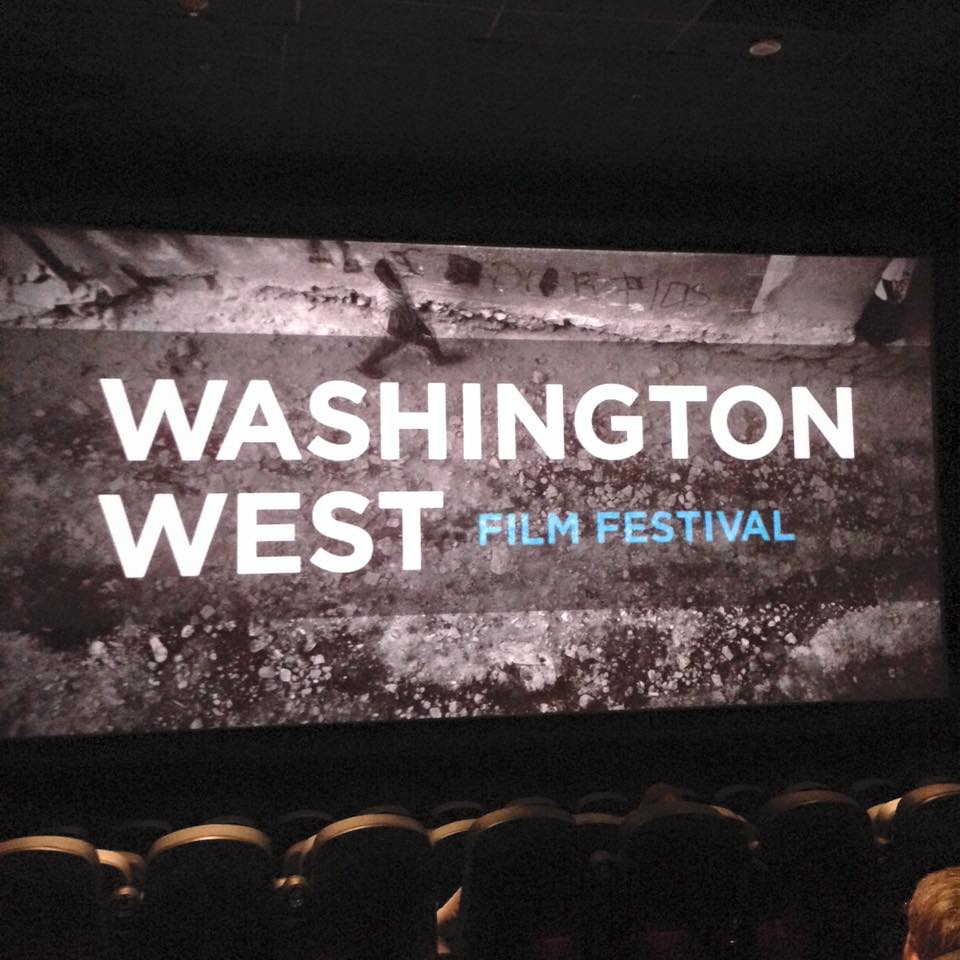
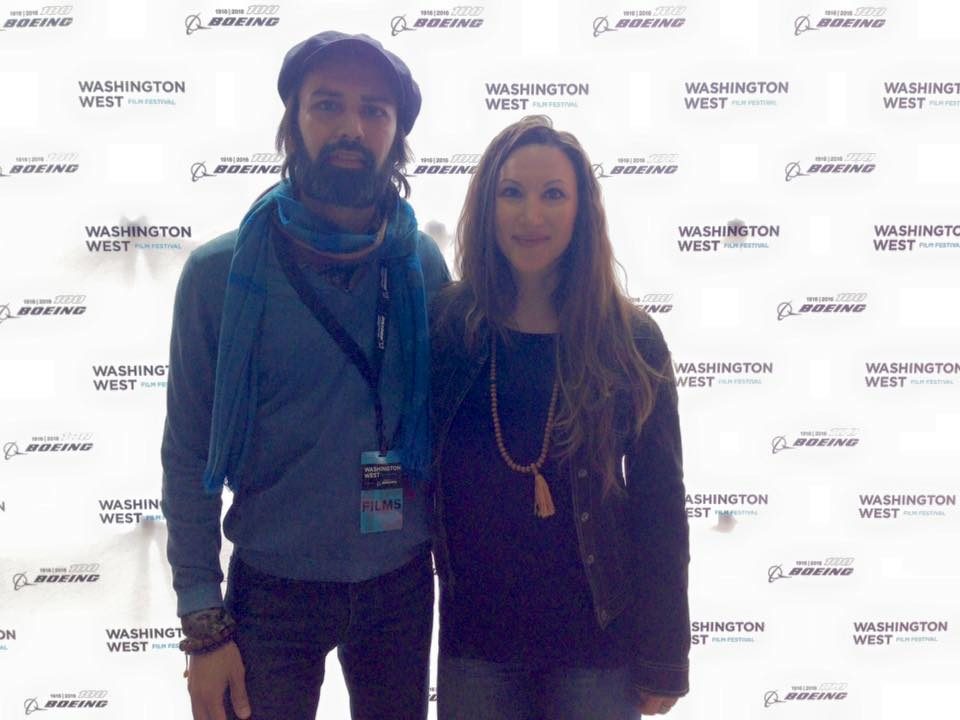
My better half Erica and I basking in the VIP treatment Washington West lavishes upon the filmmakers it showcases.
Just outside of Washington D.C., Reston is a little Wayward Pines-ish in the sense of it feeling a bit artificial—an insulated “town” that consists almost entirely of hotels, hotel-like condos, restaurants and shops. That said, Reston is spotlessly clean, walkable, offers plenty to do and eat, and the festival itself, young and small as it is, was surprisingly well-programmed. It had a great line-up of films culminating in a celebration of the 30th Anniversary of Back to the Future.
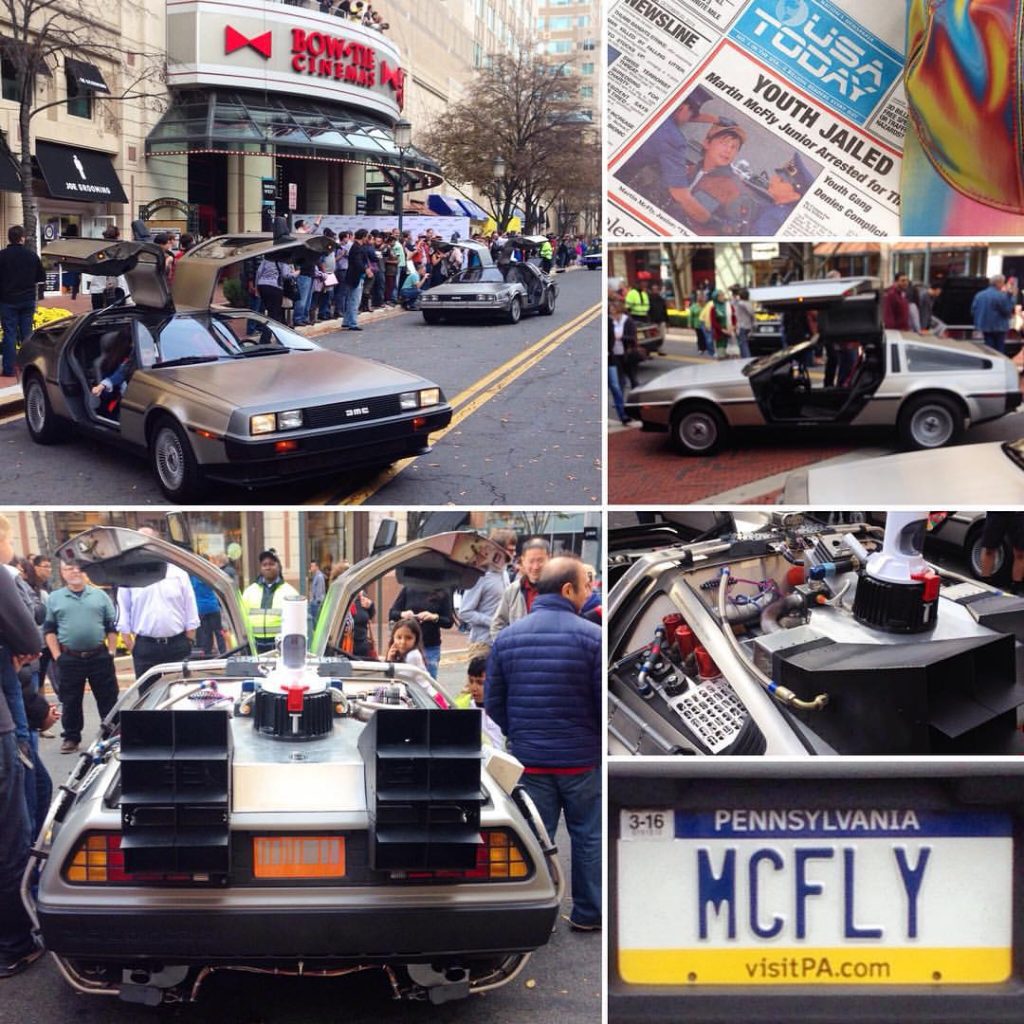
The 30th Anniversary of Back to the Future included a parade of DeLoreans and Michael J. Fox impersonators. The festivities also included a Red Carpet screening of the original film, attended by co-star Christopher Lloyd and trilogy co-writer Bob Gale.
Washington West certainly went above and beyond to make filmmakers feel valued and create a memorable experience, but what stands out is the festival’s unique mission: a core belief that story can change the world.
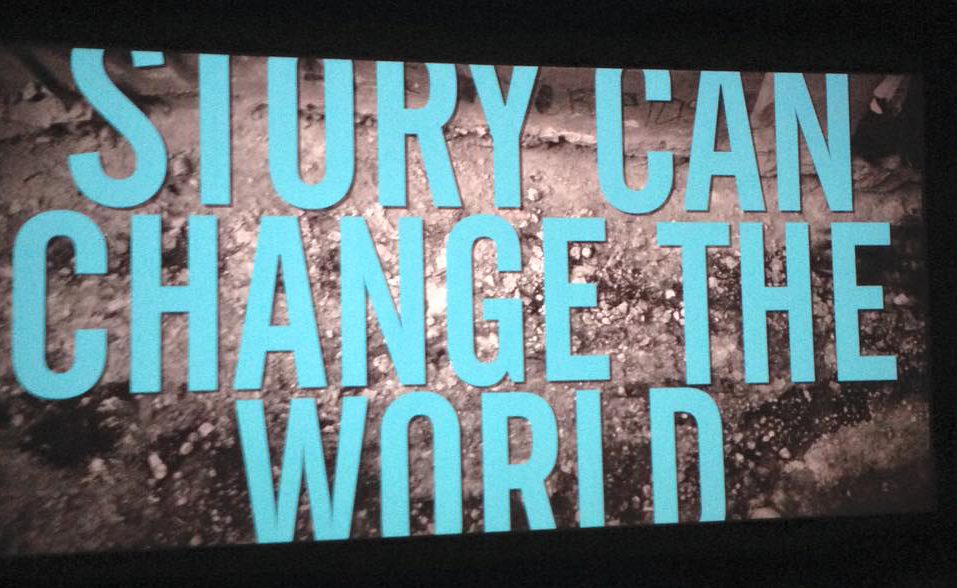
In the festival’s own words, Washington West spotlights films that “provoke us to dream and question what we know to be true. Films that inspire us to see the potential of what could be and that ultimately paint a unique picture of the raw human condition.” They also believe, as I do, that stories can impact the world and that giving exposure to a diverse array of voices and perspectives can only broaden our collective understanding, raise our awareness of issues and circumstances we’d never encounter personally, and show us worlds we’ve never seen before—like a day in the life of kids who come from the slums of Lahore.
“I saw a lot of potential in the material from a narrative and visual standpoint, but also in terms of having a chance to show a more human side of Pakistan—a side anyone in the world could relate to that has nothing to do with bombs, bullets, the Taliban or arranged marriages.”
Really, it’s the mission of the festival that made Baysabro such a good fit for inclusion in the program. And, honestly, after seeing some of the other great films that were selected, I was even more honored to be a part of it. There were many worth seeing, but the ones that had the biggest impact on Erica and I were:
- 3 1⁄2 MINUTES, TEN BULLETS, a compelling—and heartbreaking—dissection of the aftermath of the murder of 17-year-old Jordan Davis, who was shot repeatedly at a Florida gas station in 2012 for playing his music too loudly.
- FRAME BY FRAME, an inspiring documentary that follows the lives of four Afghan photojournalists who are giving birth to a photography revolution in a world where taking a photo used to be a crime.
- MY ENEMY, MY BROTHER, a moving short about two former enemies from the Iran-Iraq War who become blood brothers for life. Amazingly, 25 years after one saves the other’s life on the battlefield, they meet again by sheer chance in Canada.
In keeping with the theme of the festival, all these films affirmed that our common humanity cuts across race, nation, and political borders and showed, indeed, how a powerful story, well-told, can change your perspective or illuminate understanding.
A warm reception from a curious audience
XarB, Ali and Saad, who obviously were not able to come out from Pakistan, were truly grateful for the chance to introduce the film to a wider audience. I was enthusiastic about interacting with viewers after the screening, learning how the short had impacted them, and answering questions they might have about it.
Joining me on the floor was Adam Rackoff, co-producer of a charming short film called The Loneliest Stoplight, about the ups and downs of a traffic light’s life at an infamous intersection. It was animated by two-time Oscar nominee Bill Plympton and produced by Matthew Modine.
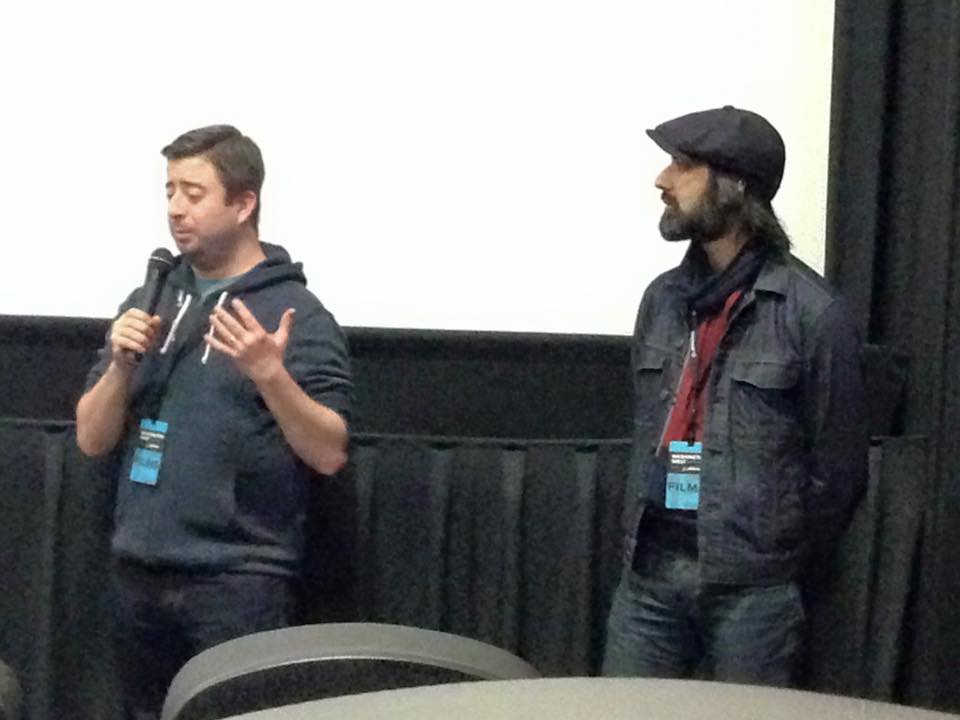
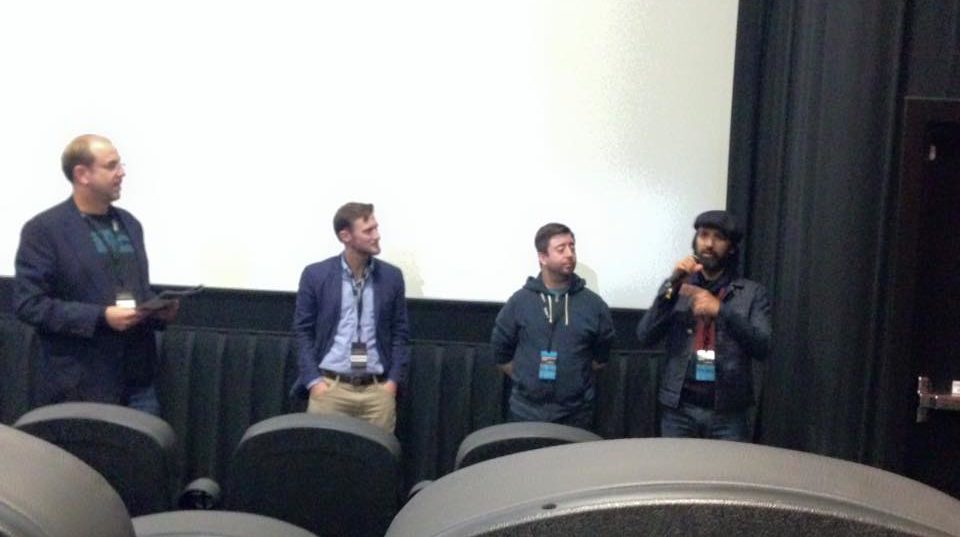
On-stage answering questions with Adam Rackoff (left).
When it was my turn to speak, I was expecting only a few questions but, to my surprise, audience members really opened up and it became clear the film had touched them and indeed shown a side of Pakistan they’d never seen before. They wanted to know a lot more about the film, the production, the kids and the country.
Really, it was an ideal venue for screening Baysabro and it went over as well as I could have hoped, especially considering the limitations we had faced in producing it. It had been our goal to strike a universal chord and create a film that would leave a lasting emotional impression, as all good stories should. As the band puts it (and the same could be said for film): “…the only music worth making is the kind that stays with listeners long after the song has ended.”
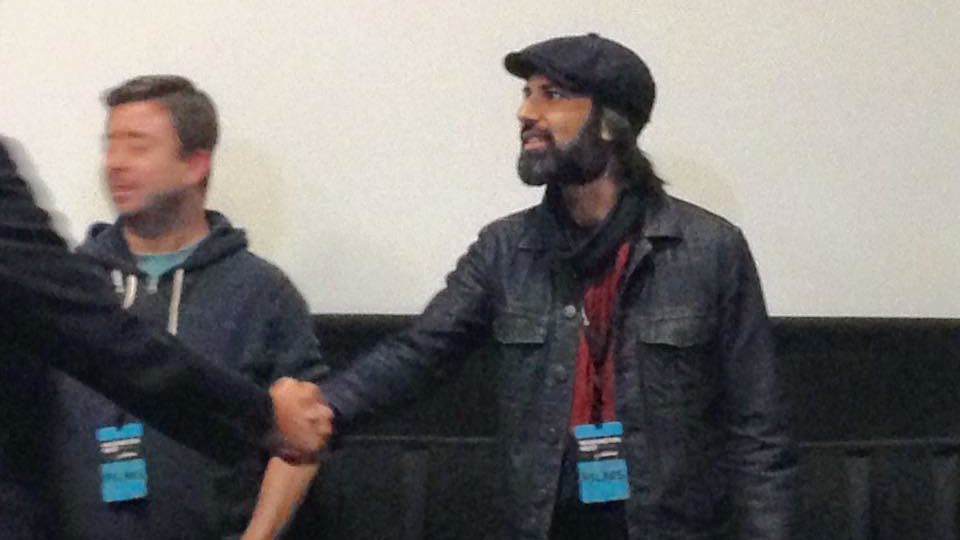
“They also believe, as I do, that stories can impact the world and that giving exposure to a diverse array of voices and perspectives can only broaden our collective understanding, raise our awareness of issues and circumstances we’d never encounter personally, and show us worlds we’ve never seen before—like a day in the life of kids who come from the slums of Lahore.”









